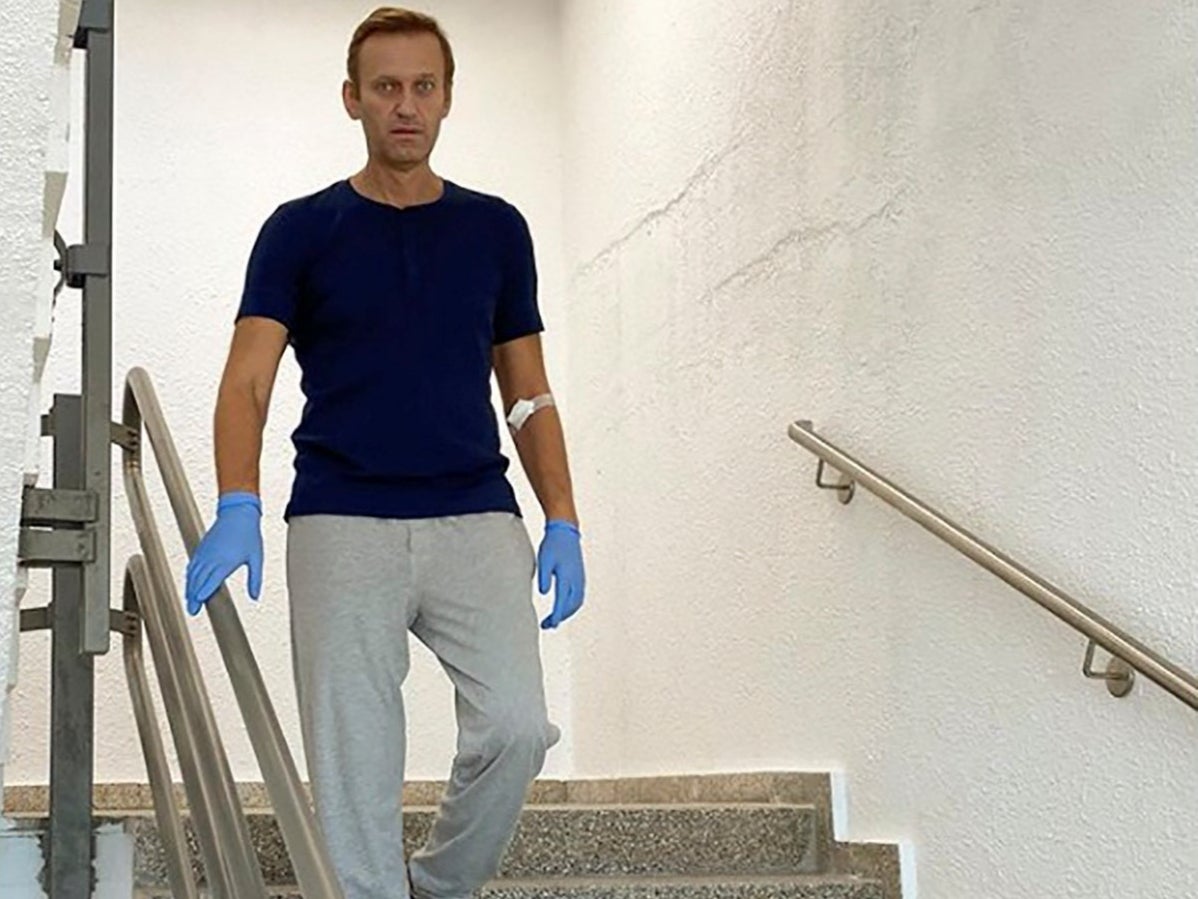How the fallout from the Alexei Navalny poisoning has the Kremlin lost for words
Moscow’s newfound circumspection appears to be a reflection of the delicate situation it now finds itself in, writes Oliver Carroll


At his daily press briefing on Tuesday, the Kremlin’s press secretary Dmitry Peskov was invited to call out the UK’s apparent hypocrisy of breaking international law while criticising Russia for doing the same thing with Alexei Navalny.
But Mr Peskov wasn’t in the mood to bite. “Russia does not get involved in the internal affairs of Great Britain,” he said, before abruptly moving on to the next question.
The Kremlin’s unusual reluctance to respond with stock Whataboutisms – “double standards”, “baseless accusations”, “Russophobia” – appeared to be a reflection of the delicate international situation it now finds itself in.
In Washington, Moscow is possibly about to lose if not quite an advocate then certainly a pliable adversary. In Belarus, it has reluctantly decided to prop up a bloody dictator, while pushing away a previously sympathetic nation in the process. And in Berlin, Vladimir Putin’s most prominent rival is not only recovering from an attempted assassination attempt, but re-emerging in a new, and arguably more attractive incarnation.
Though released from hospital on Wednesday, Mr Navalny is still some way from a full recovery. According to Vladimir Uglyov, one of the scientists who worked on developing the Novichok nerve agents, the process of physical rehabilitation could take up to a year.
But via series of social media entries, the Kremlin foe has already demonstrated his journey to becoming a human being again is almost complete.
His latest Instagram post, released on Tuesday, was an unusually soppy ode to his battle-scarred wife Yulia. Recalling his first post-coma moments, he says he longed for a mystical “Her”. “Who is she?” he writes. “It’s unclear. What does she look like? Don’t know that either.”
“Yulia you saved me,” the politician concludes. “Let them write that into neurobiology textbooks.”
Navalny has been many things over the years: sharp, acerbic, funny, biting, intelligent, and a man with an unparalleled knack for a good catchphrase. What you’d never have called him is endearing or loveable. Or even particularly human.
That may be changing. The barbarism of the attack on his life – and his willingness to return and speak out about it – might even unify the opposition behind him.
Equally, the Kremlin has historically been able to dismiss their rival in the most haughty terms, without even referring to him by name. Those times are over too. Brand Navalny now has international, not just domestic, recognition.
And for some reason or other, the international community isn’t ecstatic about the idea of a chemical weapon-powered assassination attempt on an opposition politician.
The Kremlin likely feels pinched. On the one hand, the fallout from the Navalny poisoning may well transfer into a new level of opposition inside Russia. On the other hand is the prospect of many new problems coming in from abroad, with sanctions and further censure almost inevitable.
For the time being, there seem to be plenty of reasons to keep schtum.
Yours,
Oliver Carroll
Moscow correspondent

Join our commenting forum
Join thought-provoking conversations, follow other Independent readers and see their replies
Comments